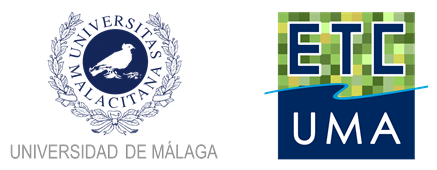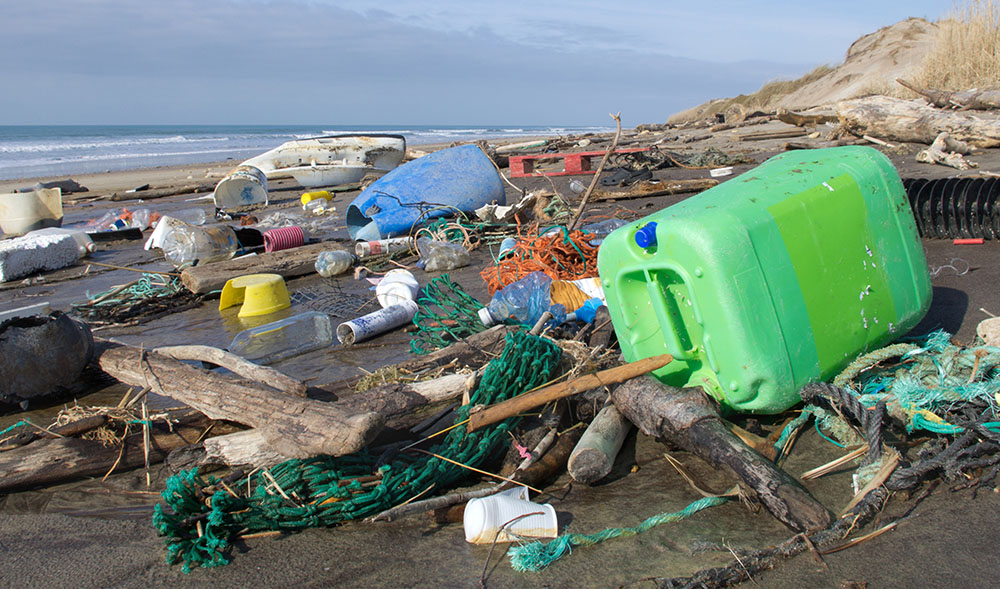In the framework of the on-going collaboration between the Interreg Med Biodiversity Protection Community led by European Topic Centre of the University of Malaga (ETC-UMA) and the Secretariat of the Union for the Mediterranean (UfMS), a new report has been released with the main recommendations stemming from the joint workshop focused on marine plastic litter and climate change and ecosystem-based approaches to managing transboundary and cumulative impacts in the Mediterranean. The workshop took place in Sharm el Sheikh, Egypt, on 27 November 2018 back-to-back the CBD COP 14 (Conference of the Parties to the Convention on Biological Diversity).
Building on the premise that Ecosystem-based management (EBM) is a powerful approach that links the ecosystem state to pressures requiring transboundary assessments, monitoring and management, participants agreed that following a business-as-usual scenario focusing on single species, short term periods and managing commodities will translate into the degradation of Mediterranean ecosystems beyond repair. Moreover, ecosystem-based management practices need to be considered beyond the realm of protected areas and involve all the users that can have an impact, among which the private sector and the managing bodies at various levels, particularly related the common threats of marine plastic litter and climate change.
The real challenge, the report highlights, is to create operational collaboration and synergies between the different tools that exist and translate them into actions that all stakeholders can contribute and converge to. The UfMS and PANACeA aim to provide therefore collaboration frameworks to bring together these various stakeholders and exchange knowledge and skills on different types of tools. With a Mediterranean vision, impacts need to be assessed at an eco-regional scale, because the nature of the eco-regions and their sensitivity in terms of biodiversity present are very different even if the drivers and pressures may be similar throughout the whole Mediterranean. This realization calls therefore for decisions based on the nature of the ecosystem and need to better engage the private sector in biodiversity management. Under an ecosystem-based management approach, more efficient engagement requires involving as many different nature and biodiversity “users” as possible.
The new report, available in this link, compiles the main outcomes of the discussions among a Mediterranean panel of experts in biodiversity, research and collaborative networking, among which Dr Dania Abdul Malak (PANACeA/ETC-UMA), Dr Ameer Abdulla (IUCN World Commission on Protected Areas), Dr Emad Adly (RAED), Dr Mehdi Aissi (UN Environment/MAP-SPA/RAC), Dr Emanuele Bigagli (PANACeA), Dr Purificació Canals (MedPAN), Ms Nada El Shanawany (Nature Conservation Egypt), Dr Cristina Fossi (PlasticBustersMPAs/University of Siena), Dr Manal R. Nader (Institute of the Environment, University of Balamand, Lebanon), Ms Alessandra Sensi (Secretariat of the Union for the Mediterranean) and Dr Vassiliki Vassilopoulou (AMAre/Hellenic Centre for Marine Research).
The application of EBM to different scenarios and conditions was illustrated during the workshop with various EBM case studies that maintain the integrity of ecoregions in the Mediterranean and can also resonate globally.
The Med Biodiversity Protection Community work related to marine litter, biodiversity and collaborative efforts were also presented by ETC-UMA and acknowledged by the UfMS as an integrating and positive initiative during the EU Horizon 2020 BlueMed coordinators meeting in Malta on 25 January 2019, seeking to integrate innovation, blue economy, research and environmental protection and where the Med project PlasticBustersMPAs was also introduced.
You can access the CBD workshop agenda here, the initial set of key messages here and the report on Ecosystem-based approaches to managing transboundary and cumulative impacts in the Mediterranean, with a focus on marine plastic litter and climate change via this link.
For the presentation by ETC-UMA during the BlueMed event to on research, innovation and a blue economy, you can see here.




